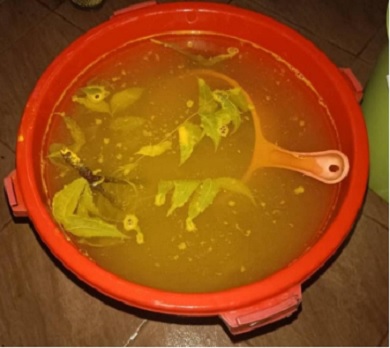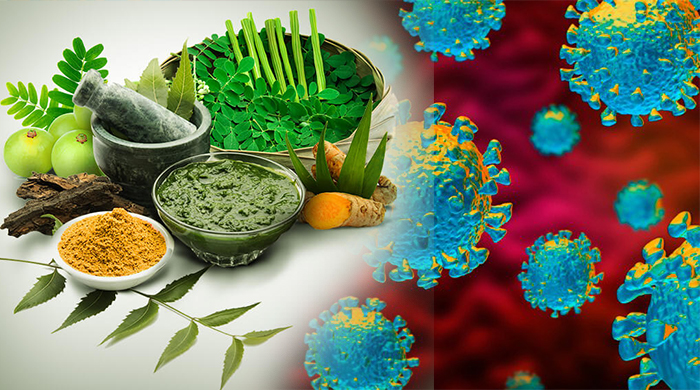There are currently a total of 785,777 confirmed cases and 37,815 deaths around the world due to the COVID-19 coronavirus outbreak as of today. While scientist around the world are racing to find a cure to treat the disease with some vaccines having entered into clinical human trials, some are turning to traditional herbs and medicinal plants in hope to keep them safe.
While certainly not scientifically proven to treat Covid-19 these Indian traditional remedies are in high demand due to their anti-inflammatory and antibacterial properties known to boost the immune system and promote good health in general.
Tumeric Water

By all means, hand sanitizers are effective, however, during hard times and due to panic-buying consumers, the sanitizers are out of stock in the hypermarket. During this time, turmeric water can come to rescue.
It is believed to have several functions in preventing or treating diseases or viral infections (Shome et al., 2016). Therefore, exploring a natural component such as turmeric which has the substance of Curcumin can actually serve as an alternative to develop as antivirals. Tumeric water can be used as hand sanitizers and bodywash while showering besides consuming it internally.
Get an empty coke bottle, fill it up with water, add turmeric powder and take it wherever you go. Wash your hands regularly with turmeric water after pumping petrol and wipe your car steering with the cloth. Try this regularly to keep your hands clean.
Neem Leaves

Neem has been used as a traditional treatment for a multitude of communicable diseases such as malaria, dengue, influenza and chicken pox. According to ayurvedic believes, consumption of fresh neem leaves can help prevent infections and flu besides its other benefits due to its over 100 beneficial active compounds.
If you have the plant at home, pluck some of its sprigs and put it in a glass of water and place it on your workstation, hall, dining or even tying it at the front door of your home.
Neem can also be used to shower. Pluck some neem sprigs, add turmeric into a pail of hot water and have a good bath. Neem is also known as Margosa Leaves and ‘Pokok Mambu’ in the Malay language.
A recent report in the New England Journal of Medicine, claims the virus could last for a few seconds on air, while others suggests it may be two to three hours thought the ‘droplet spread’ method. To ensure the air we breathe in is safe and anti-bacterial, some Indian houses burns Neem leaves with ‘sambraani’ or charcoal.
Tulsi Tea

Commonly known as the Holy Basil, this tea helps combats respiratory ailments and prevent illnesses ranging from cold and cough to bronchitis and asthma. It has immunomodulatory (helps to enhance immunity), antitussive (helps relieving cough) and expectorant (helps in expelling out the phlegm) properties that provide relief in the respiratory system.
To make the Tulsi tea, or the Holy Basil Tea, lay out the sprigs and leaves on a plate and let it dry. Once the herb is wilted, heat water and add into the boiling pot. After boiling it, soak it and let it cool for 15 minutes, before straining. Pour over some ice and enjoy it on a sunny day. You can also drink it hot if desired. To add sweetness (if required), try adding honey.
While theses traditional remedies can be taken as extra precautionary measures to maintain good health in general, the best way to prevent Covid-19 at the moment is to avoid being exposed to the virus altogether by practicing social distancing and avoiding close contact with people who are sick, washing hands regularly and making sure frequently used objects and surfaces are clean and disinfected.











